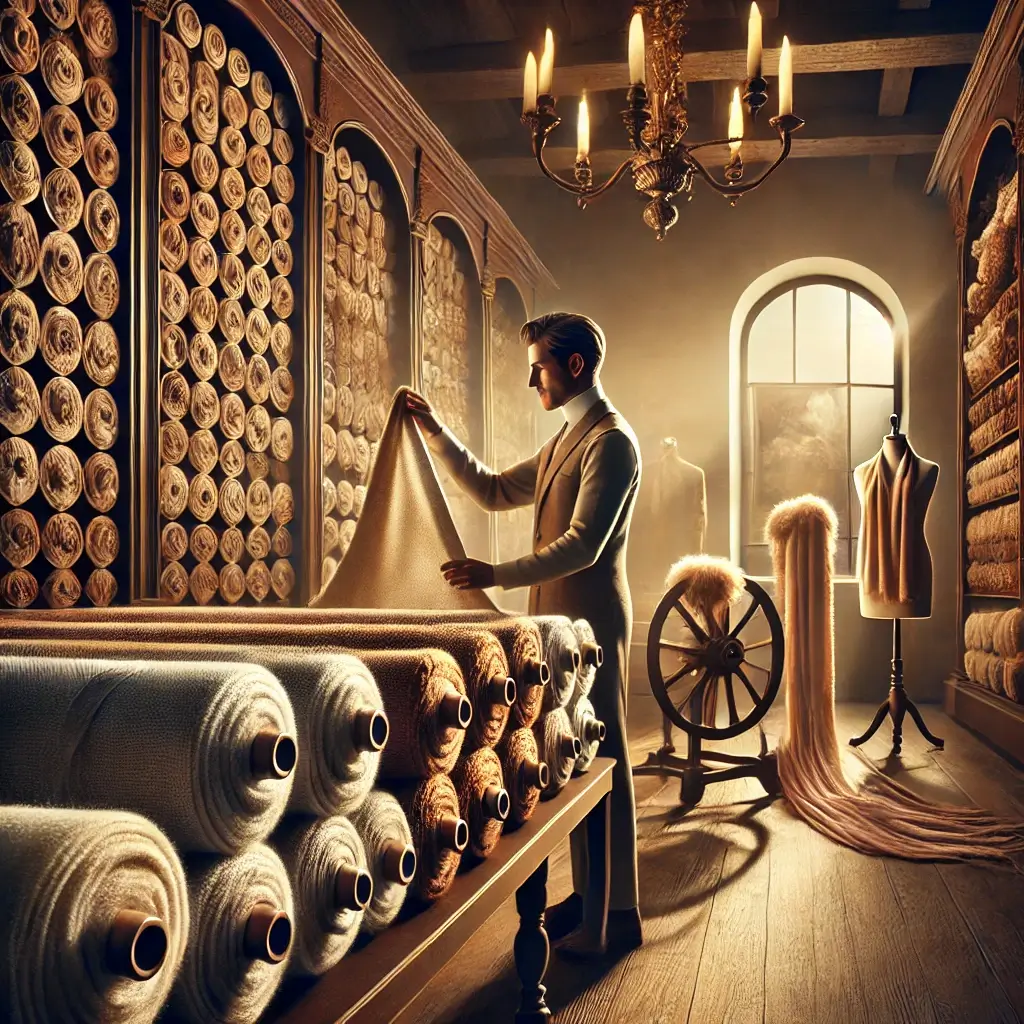The Luxury Market Evolution
As global luxury markets evolve, brands like Loro Piana epitomize the intersection of exclusivity, craftsmanship, and sustainability. Known for its extraordinary attention to detail and dedication to the rarest materials, Loro Piana has cultivated a reputation that transcends the textile industry. Since its inception in 1924, the company has built a legacy rooted in excellence, ensuring its fabrics command some of the highest premiums in the global luxury market.
Investment Value Proposition
For investors, Loro Piana represents a compelling case study in leveraging artisanal traditions alongside modern sustainability practices. The brand’s alignment with growing consumer demands for authenticity and environmental responsibility reinforces its long-term value proposition. Notably, Loro Piana’s premium pricing model, supported by exclusive sourcing agreements and innovation-driven processes, underscores its ability to maintain exceptional profit margins in a competitive market.
Article Purpose
This article examines Loro Piana’s operational pillars, current market dynamics, and future growth opportunities, offering investors a deeper understanding of the brand’s strategic significance within the luxury industry.
Key Operational Pillars
Key Operational Pillars
Exclusive Sourcing Strategies
Loro Piana’s ability to access the world’s rarest natural fibers differentiates it from competitors:
Baby Cashmere Program
Baby Cashmere Program: This initiative produces fibers with an average diameter of 13 microns, harvested from six-month-old goats during a one-time combing process. The limited annual output (approximately 2,000 kilograms globally) highlights the rarity and value of this material.
Vicuña Conservation
Vicuña Sourcing: By engaging in conservation projects, Loro Piana ensures sustainable harvesting while supporting local communities. These efforts enhance the brand’s reputation as an ethical luxury producer.
Technological Innovation
Beyond sourcing, Loro Piana invests heavily in proprietary processing techniques:
Quality Analysis Systems
Fiber Quality Analysis: Advanced tools like optical diameter scanners and computerized color matching ensure uniformity and precision.
Environmental Production
Sustainable Practices: Techniques like water-efficient cleaning and low-impact dyeing reduce environmental footprints without compromising quality.
Production Excellence
The final stages of production—including tension-monitored spinning and natural finishing methods—solidify Loro Piana’s position as a leader in luxury textiles.
Market Context and Investment Insights
Market Context and Investment Insights
Financial Performance
Recent data underscores the financial success of Loro Piana’s premium strategy. The 2024 Morgan Stanley Luxury Goods Analysis notes a steady revenue growth rate of 13% annually, driven by:
Asia-Pacific Market Growth
Asia-Pacific Expansion: Rising affluence in countries like China and South Korea has spurred demand for high-quality luxury goods.
Generational Consumer Trends
Sustainability Appeal: Millennials and Gen Z consumers increasingly prioritize brands with ethical sourcing and environmental commitments, a space where Loro Piana excels.
Competitive Positioning
Compared to peers in the LVMH portfolio, Loro Piana’s reliance on exclusivity rather than volume positions it uniquely. For example, while competitors may focus on broadening market access, Loro Piana emphasizes scarcity, which maintains brand prestige and pricing power.
Current Market Trends
Market Trends
Sustainable Luxury Demand
Growth in Sustainable Luxury: The Sustainable Fiber Alliance’s 2024 report highlights increased consumer interest in eco-friendly products, with luxury buyers willing to pay up to 25% more for sustainably sourced textiles.
Secondary Market Value
Resale Market Value: Products like Baby Cashmere garments and “Gift of Kings” wool maintain high residual value, often appreciating over time in secondary markets.
Future Opportunities
Future Opportunities
Material Science Advancements
Innovation in Material Science
Research and Development
Loro Piana’s R&D initiatives focus on enhancing fiber durability and developing eco-conscious alternatives. Current projects include biodegradable treatments and regenerative agriculture partnerships.
Digital Transformation
Digital Integration
Customer Experience Technology
As part of its future strategy, Loro Piana is exploring digital avenues to enhance customer engagement. From blockchain-based supply chain transparency to virtual showrooms, the brand aims to blend traditional craftsmanship with modern consumer experiences.
Environmental Leadership
Sustainability Leadership
Conservation Partnerships
The company’s partnerships with conservation organizations and investment in renewable energy for production facilities further align its operations with global sustainability goals, ensuring continued relevance in the luxury market.
Investment Summary
Conclusion
Value Proposition
For discerning investors, Loro Piana offers a unique blend of timeless luxury and forward-thinking sustainability. The brand’s focus on rarity, quality, and environmental stewardship ensures its enduring appeal among high-net-worth individuals and eco-conscious consumers alike. Furthermore, its strategic positioning within the LVMH portfolio provides stability and growth potential, making it a standout opportunity in the luxury investment landscape.
Future Outlook
As the luxury market continues to evolve, Loro Piana’s steadfast commitment to excellence and innovation will likely drive both financial performance and industry leadership. By capitalizing on emerging trends in sustainable luxury and technological integration, the brand is poised to remain a cornerstone of the luxury textile sector for decades to come.
Sources
References
Industry Research
Morgan Stanley Luxury Goods Analysis 2024
Sustainability Reports
Sustainable Fiber Alliance Market Review 2024
Fashion Industry Analysis
Business of Fashion Technical Report 2024
Academic Research
Journal of Textile Science 2024
Industry Standards
International Wool Textile Organisation Standards 2024

